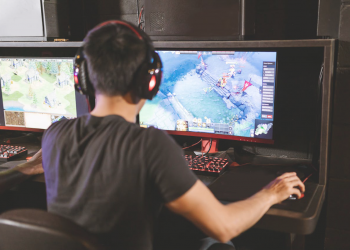Is the ‘office’ next on Gen Z’s hit list?
Relaaax, not the Dunder Mifflin Paper Company.
We’re talking about the office that we used to frequent so often before the COVID-19 pandemic forced us to work remotely.
Remember?
There were some desks, mildly uncomfortable chairs, a printer that always jammed, an unofficial gossip station (aka coffee machine), probably some harsh fluorescent lighting, and – if you were super lucky – some free fruit?
Well, early indications suggest Gen Zs – who’ll eventually comprise a dominant portion of the world’s workforce – are rejecting traditional office culture in favour of a more flexible, hybrid workplace post-pandemic.
Atlassian has already gone all-in on work from home (WFH) with its ‘Team anywhere’ policy.
The project management software giant’s 5,700 employees worldwide can work anywhere the company has a corporate entity and the employee has a legal right to work.
Staff only need to head into the office four times a year.
Atlassian’s co-founder Scott Farquahar has himself only headed into the office three times in the past twelve months.
“We’ve built a great company, tapping into a global talent base and so the idea of ‘Team Anywhere’ is that talent still exists anywhere it just doesn’t happen to need to exist within 50 kilometres of an existing office,” he says.
The policy is remarkably lenient, but not all prominent tech companies are on board.
Elon Musk is one of them.
In an email leaked on Twitter, Musk informed Tesla staff that remote working is no longer acceptable and they must return to the office full time, and those who didn’t “should pretend to work somewhere else”.
Savage.
Meanwhile, Google, Amazon and Netflix have also expressed their desire for employees to return to the office.
Here’s the thing – while Gen Zs as digital natives adapted easily to remote work during pandemic lockdowns and desire a more flexible working environment, those at the beginning of their careers aren’t actually keen to work from home full-time.
As Ashley Stahl cited in Forbes, Gen Z’s concerns about working remotely not being fulfilling or the kind of work experience they’re looking for with three main areas of concern: isolation, decreased motivation, and disorientating work-life balance.
Not being able to learn from more experienced workmates is also an issue.
“Moreover, research indicates that the lack of in-person connection can translate into less promotions and rising in the ranks for those who aren’t having face-to-face time with their boss,” Stahl said.
Speaking to Mumbrella, CEO of digital experience agency Huge, Mat Baxter, said he’s adopting a fully-flexible model and closing all the agency’s global offices besides one in New York which will be repurposed as a “global experience centre” for more fun, culture-building activities rather than straight desk work.
“The office experience is a really flat and boring experience for employees,” he said.
“You come together, you plonk yourself down in a spot and you spend most of the day on your computer and you might see people in passing when you’re at the elevators or when you have your lunch, but it’s not exactly a dynamic and exciting experience for employees.”
Instead he said they would remove the constraint of coming to a physical location to work to instead focus on creating bonding and culture-building experiences.
“The office was born from a time where the company needed you to come into the office and your boss needed to look over your shoulder and make sure you were working, and you turn up on time, and if you arrived at 9:05 instead of 9:00, you were late,” he said.
“That’s a problem. Like it was a very command-and-control construct, and a construct that quite frankly messages to employees that the company doesn’t trust you enough.
“But I think if you get the right quality of talent, then all of those issues, you just talked about melt into the background, they become irrelevant because really good people are diligent and I just think that companies need to message trust and respect because the workforce today, particularly younger people will not tolerate and environment that is anything other than that.”
So where to from here for the Gen Z workplace? What would a healthy hybrid model look like?
As always, we suspect balance is key.






